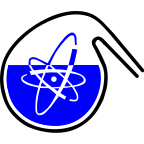Conveners
NFC 4
- Miroslav Cernik (Technical University of Liberec)
- Nick Evans (NTU)
After the Fukushima nuclear power plant accident, radionuclides containing fission products were released from the fuel debris into the cooling water. For the treatment of the contaminated cooling water, the Advanced Liquid Processing System (ALPS) facility has been operating for 7 years. Most of the cationic species of fission products are well eliminated in ALPS by sorption and/or...
Experimental research on active materials often goes along with the generation of compositionally complex waste streams for which a suitable route towards safe (interim) storage is lacking. This has worldwide resulted in the accumulation of significant volumes of highly diverse types of waste. The complexity of the streams invokes the need for tailored solutions for the individual components....
The final disposal of spent nuclear fuel will be performed in Finland in a geological repository in crystalline granitic rock at a depth of 400 meters [1]. The processes affecting the transport of radionuclides from the spent nuclear fuel to the biosphere need to be carefully taken into account when considering the overall long-term safety of the repository [2]. Consequently, it is necessary...
Several laboratory through-diffusion experiments with HTO, 36Cl, selenate, 22Na, 85Sr, 134Cs, and 133Ba were performed on samples from experimental and monitoring borehole of the Long Term Diffusion Phase III experiment in Grimsel Test Site. Salinity dependent cation excess and anion exclusion effects were observed. Anion effective...
Crystalline rocks are being considered as potential host rocks for the construction of deep geological repositories (DGR) for radioactive waste in a number of European countries including the Czech Republic. The aim of the project (PAMIRE) was to determine the degree of reproducibility the laboratory determination of tracer transport processes of the tracers compared to the results of the the...

